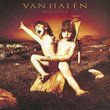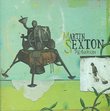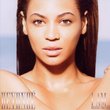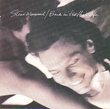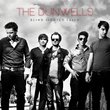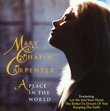| All Artists: John Stewart Title: Day the River Sang Members Wishing: 2 Total Copies: 0 Label: Appleseed Records Original Release Date: 1/1/2006 Re-Release Date: 2/21/2006 Genres: Folk, Pop Styles: Traditional Folk, Contemporary Folk, Singer-Songwriters Number of Discs: 1 SwapaCD Credits: 1 UPC: 611587109323 |
Search - John Stewart :: Day the River Sang
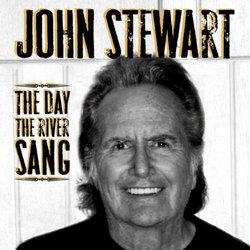 | John Stewart Day the River Sang Genres: Folk, Pop
John Stewart may appreciate the rewards of eBay?s current ad campaign, which is embedding "Daydream Believer," his 1968 #1 hit for The Monkees, in a new generation?s consciousness, but it?s a misleading calling card for th... more » |
Larger Image |
CD DetailsSynopsis
Album Description John Stewart may appreciate the rewards of eBay?s current ad campaign, which is embedding "Daydream Believer," his 1968 #1 hit for The Monkees, in a new generation?s consciousness, but it?s a misleading calling card for the singer-songwriter described as "a master wordsmith who captures the soul of America in his songs" by Billboard. Since leaving the Kingston Trio, preceding the careers of Prine, Kristofferson, Springsteen, Earle, and the rise of the Americana movement, Stewart has written and recorded more than 50 albums of stripped down songs of everyday saints and sinners, their moments of elation and desperation, and of our country?s natural beauties and toxic political undercurrents. He?s recorded with Johnny Cash, and had his own songs recorded by Johnny?s daughter Rosanne and many others. This latest collection of new Stewart originals affirms John?s powers as a master painter of indelible pictures in song. Using the warm leads and brushstrokes of his own guitars, his longtime rhythm section, and dabs of keyboards, harmonica and backing voices, Stewart applies a similarly understated approach to his lyrics and vocals. Now in his mid-60s, Stewart invests the opening love song, "Baby, It?s You," with a sense of relief and gratitude a younger man might lack. But the youthful gleam in his eye is unmistakable on the frisky "Amanda Won?t Dance." The pull between heart and highway is frequently felt, as in the lovely "Jasmine," on which John?s weathered tenor swoops into a sweet falsetto. One would be hard-pressed to find a more poignant elegy for the pre-Hurricane Katrina Crescent City than "New Orleans," with its heartbroken piano accompaniment and regret-filled vocals. With their musical roots in folk, country, rock and bluegrass, John?s songs frequently encompass subjects stretching from the sky above to the mud below. "The Day the River Sang" includes a terse character study of the "junkies and jockeys" at "Golden Gate Fields," and the lightly jazzy "Slider," which watches a good girl go wrong. On the metaphysical end of the spectrum, the title track is a vision of paradise and peace, while "Sister Mercy" is a plea for direction in troubling times. In between are John?s tribute to his muse, "Naked Angel on a Star-Crossed Train," the propulsive tragicomedy of "Midnight Train," and a new version of "Run the Ridges," from his Trio days. Similarly Requested CDs
|
CD ReviewsJohnny Moonlight Still Going Strong Saint of San Joaquin | 02/22/2006 (5 out of 5 stars) "Somehow, it's easier to keep the faith just knowing that John Stewart is still out there, writing tunes and recording CD albums. Stewart provides shelter for those of us who long for truly grown-up music, for hard-lived imaginings of heartache and resurrection, and for songs of the weathered, deep-rutted road. "Havana" came out three years ago and offered immediate classics like "Rally Down the Night" and "Dogs in the Bed." Now, Stewart has crafted another gem, crisp and polished, straight from his noble, weary heart, with at least five songs that could take up immediate residence near the top of the Stewart catalog. He's got three distinct voices these days--plaintive on "Sister Mercy," robust on "Amanda Won't Dance and "Baby It's You," forthright on the title track--and he uses each with refreshing integrity. And, oh my, what a gorgeous guitar this man doth play. Spin this CD in concert with any of Stewart's best album work--be it "California Bloodlines" or "Punch the Big Guy"--and there is no doubt about it...the Lonesome Picker is still going strong." Grace, Hope, and Humanity Tom Schusterbauer | West Bloomfield, Michigan United States | 11/18/2006 (5 out of 5 stars) "If you read my review of Stewart's The Complete Phoenix Concerts, you know that I have been listening to this guy for almost 40 years, from his first solo effort, Signals Through the Glass (imagine using a wonderful quote from John Updike on the cover of your first solo album). I love his work, his humor, his songs of both hope and despair; on the other hand, I would not stamp every one of his recordings with the highest rating. At his worst, he is very good. At his best, there is no one better. The Day the River Sang is a fitting valedictory to this man's career, his experiences, and his beliefs. It's no secret that Stewart, nearing 70, is not only still writing but is still performing, both here in the states and in the British Isles. His lovely and lilting homage to the sweet seduction of the road is found here in the song "Jasmine." Now Stewart has handled this topic before, as early as in "Freeway Pleasure" with the warning that "as long as the tires still cry on the highway, as long as the dogs still die on the road" he will always think of the road as his home. And as sharp as those images are, Stewart at least matches them in "Jasmine" as he sings "and, oh, here come those highways again, and, oh, here I go. And, oh, here comes 'I'll find you my friend' in roses and canyons" where "night blooming jasmine" still grows. Stewart's "Broken Roses" gives word and music to the bittersweet truth of life that can only be learned by living it, by suffering through it, by finding the miracles among the madness. "I don't know what it means," he admits, "but I'm playing it through." As with virtually all of Stewart's recordings, there seems to be one song that should have found a huge audience, should become part of this country's intellectual and emotional currency. His early "Armstrong," his Mount Rushmore like "Mother Country," his truly political and wonderfully populist "Survivors" all come to mind. On this recording, it is "New Orleans." Every time I listen to it, I recognize it for what I think it is--a soundtrack for both the glory and the ultimate tragedy of that great city. His voice is soft but plaintive; the New Orleans piano accompaniment is both chilling and sweet. And I swear that I can hear a light chuckle in Stewart's voice when he sings of "Voodoo Alley and Sweet King Cake, Confetti rain, for heaven's sake." Parts of the melody are familiar, as Stewart borrows from another early song, "Kansas," which, in its first incarnation, was bleakly existential yet, because this is Stewart, marginally hopeful. The same can be said of so many songs in his canon and on this recording. John Stewart has suffered as much as most, and more than many. From his early days writing songs as part of the post-Dave Guard Kingston Trio, until now, 40 years later, he has had the good eye, the saving sense of humor, and the open heart. Buy this cd. And then buy a whole bunch more of Stewart's recordings. He is nothing less than a gift in what always seem to be troubling times." John Stewart is amazing Richard Kern | arizona | 03/13/2006 (5 out of 5 stars) "Born in 1939, this man is now 67 yrs of age and to create an album as truly wonderful as this one is nothing short of magnificent. Remember that John had to curtail touring for a while last year after suffering a concussion as the result of a fall. Remembering lyrics to his songs were a problem as well as suffering from vertigo. He is now back writing, and signing and we are all the better for it. The album is full of songs which you can immerse yourself in close your eyes and see the vivid picture he has painted with his words. Havana was a bad blip on the radar. He is back with a vengance. Tell all your friends to get this album even if they never heard him sing before. If radio had a soul John would be heard daily."
|

 Track Listings (13) - Disc #1
Track Listings (13) - Disc #1
